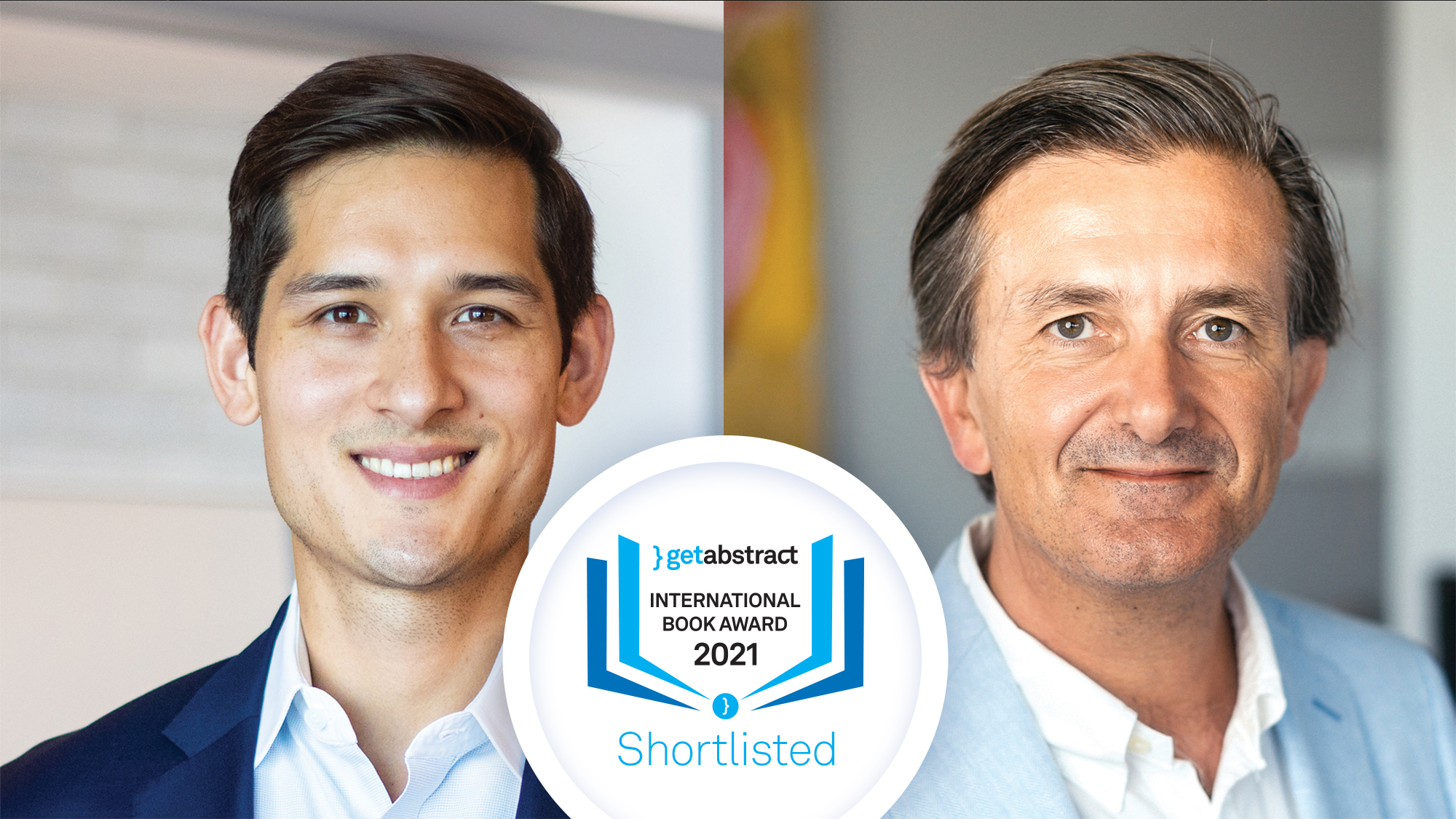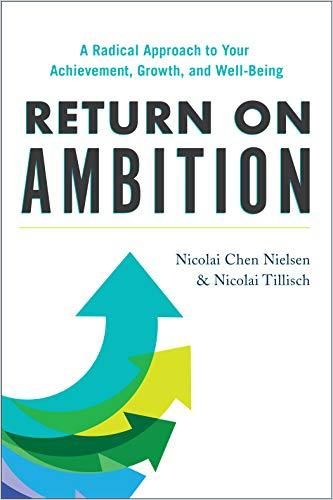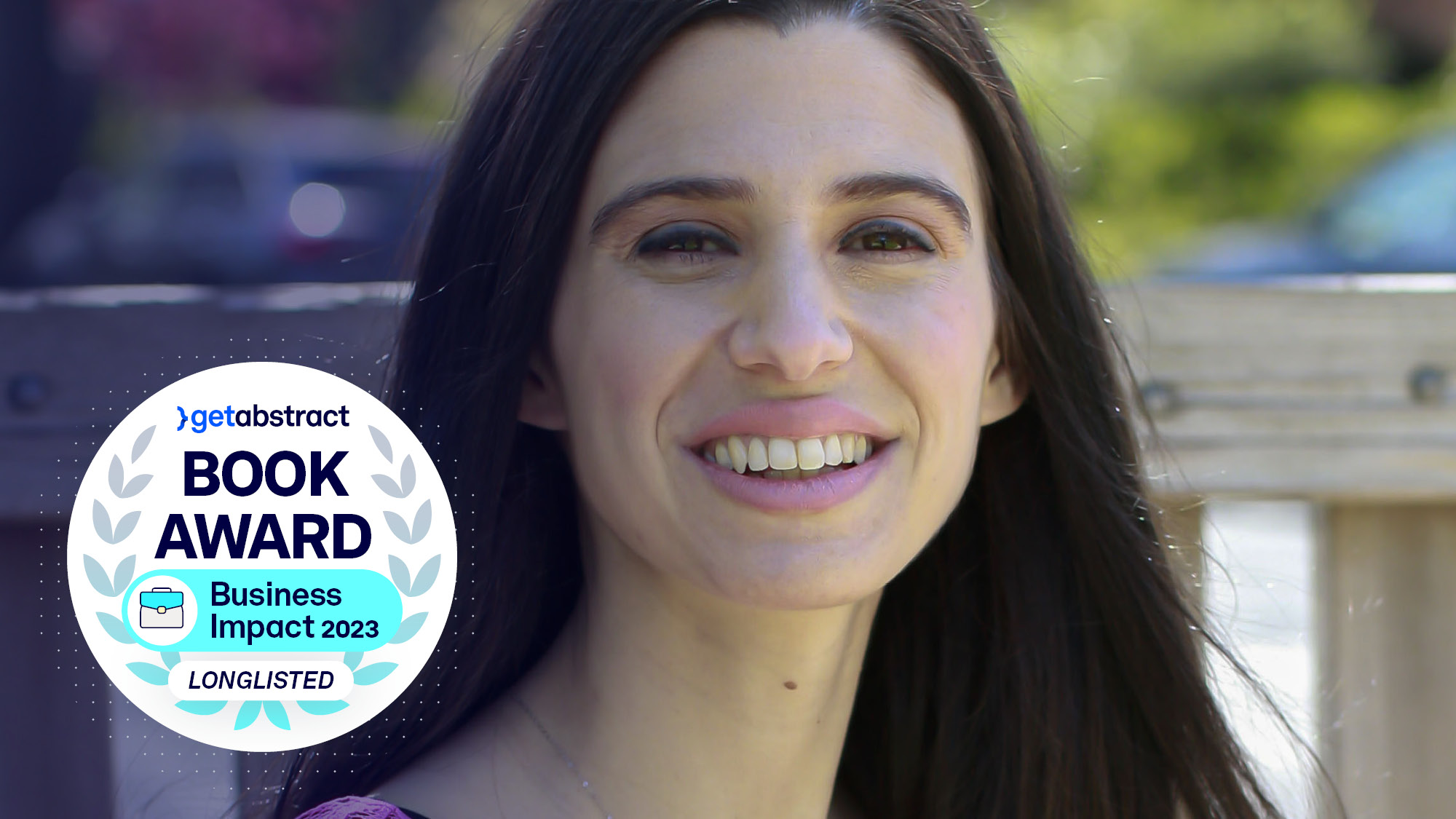“Well-Being Doesn’t Just Mean Switching Off. It Is About How You Burn Your Light.”

Nicolai Chen Nielsen and Nicolai Tillisch, how do you define “ambition”? And in what way might your definition differ from that of others?
Nicolai Chen Nielsen: We define ambition as a strong yearning and drive to reach a future state that’s different from today’s, is personally meaningful and challenging to get to. Our definition differs from others because it encompasses all three of these components. We keep our definition broad on purpose to include as many people as possible. Most people have something they want to reach or harbor an inner drive toward something.

It seems that people tend to view ambition as either inherently positive or negative. What are some of the misconceptions people have about ambition?
Chen Nielsen: Ambition is often misunderstood and also not talked about enough. In some countries, it’s even a little bit taboo to say, “I have ambitions.” We find that to be a problem. Ambition is a yearning and drive, and it’s something that’s innate in most humans. It can be used for good and also less beneficial purposes. Regardless, talking about your ambition helps you figure out what is important to you and how you want to contribute to society.
Ambition does not need to be selfish…
Nicolai Tillisch: Take the young activist Greta Thunberg, who wants to mobilize a whole generation around an agenda. I think that’s ambitious. Our definition of ambition includes a yearning for reaching a future state that is different from today’s. For people who are concerned about the future – in terms of the climate crisis or other threats – it requires ambition to mobilize people and make a difference.
Ambition is a yearning and drive, and it’s something that’s innate in most humans.
Nicolai Chen Nielsen
While working on the book, you’ve conducted many surveys and in-depth interviews with highly successful people. What findings surprised you the most?
Chen Nielsen: Over 90% of professionals we surveyed globally, across industries, the arts and sciences, and so forth, characterize themselves as being ambitious or highly ambitious. This surprised me. Another interesting finding came out of our in-depth interviews. Most people who reported feeling fulfilled today went through at least one very painful experience, often precipitated by ambition. Most of them went through one or more “Aha!” moments that highlighted to them that their ambition was getting in their way, manifesting in stress, burnout, divorce, etc. I was surprised by how many lessons people had to learn until they reached their current state of fulfillment. Part of what we aspire to with our book is to help readers avoid or minimize these discomforts.
Of all the people you have interviewed, what do people who report a high return on ambition have in common? What do they get right?
Tillisch: People who report a high return on ambition are very good at balancing achievement, growth and well-being over time. People who are both successful and report feeling fulfilled pay close attention to all three aspects on a continuous basis. They might make temporary compromises, but in general, they are really good at balancing the three.
Chen Nielsen: Yes, and they are also very self-aware. They make very conscious choices on an ongoing basis to ensure they keep the three components in balance.
Tillisch: The notion of work-life balance is interesting because it doesn’t really apply. For many ambitious people, their work is part of their life. They need to define for themselves what balance looks like for them.
People who report a high return on ambition are very good at balancing achievement, growth and well-being over time.
Nicolai Tillisch
COVID-19 prompted many people to rethink their priorities and second-guess their ambitions. Would you have approached the topic of ambition differently if you had written the book after the start of the pandemic?
Tillisch: As devastating as the pandemic has been, it has opened many people’s eyes to how much corporate professionals have been suffering in terms of poor mental well-being. A main conclusion from our research, all conducted pre-pandemic, has been that well-being drives people’s long-term success. Well-being doesn’t just mean switching off. It is about how you burn your light. It’s about how people live their lives. It’s very personal. Unbeknownst to us at the time of writing, I think our book reflects the zeitgeist we are in right now surrounding the topic of well-being.
Chen Nielsen: I don’t know if I would have approached the main part of the book differently. We started with the aspiration of bringing self-coaching and personal development tools to more people. Our book helps people gain greater self-awareness and make more deliberate choices regarding their ambitions. One thing I would add today is a chapter on how companies can create an environment that enables ambitious people to thrive. People spend a third of their lives at work. Helping people thrive at work is not just about adding a few company-sponsored well-being initiatives. It’s about radically rethinking the future of work. It’s about integrating achievement, growth and well-being into everything a company does.
Our book helps people gain greater self-awareness and make more deliberate choices regarding their ambitions.
Nicolai Chen Nielsen
Burnout and stress are issues getAbstract customers are currently grappling with a lot. How do you keep pursuing your ambition without falling into these traps? At what point does ambition become counterproductive?
Tillisch: One thing that is very dangerous is for people to drop their ambitions, which are usually deeply ingrained. You may think that the logical step for someone who is stressed or burned out is to just let go of their ambition. But people cannot just switch off. Many people who are under pressure are not burned out. What they need to learn is how to use their flame more appropriately. A lot of the literature around stress and burnout prescribes something that is alien to people who are naturally ambitious. Ambitious people need to learn how to be ambitious in a healthier way. They don’t need to be talked out of what they are striving for.
That’s really important because burnout has a lot to do with feeling out of control, of not being in control of your life. So teaching people how to recraft their work lives so they feel more empowered will go a long way…
Chen Nielsen: I think that’s spot on. And a lot of it falls on redefining the way companies operate. The latest data on engagement suggests that people feel they are growing less because they are working from home. At the same time, they are feeling more stressed. And that’s dangerous. Many people leave companies because of that. Companies will no longer be able to ignore the fact that the old era of people coming to work, be there for eight hours and leave is over. Today, companies will need to think about employee experience much more holistically.
Ambitious people need to learn how to be ambitious in a healthier way.
Nicolai Tillisch
Do you relate to your own ambitions differently after researching and writing the book?
Tillisch: Yes, I think so. Turning ambition into an object that you can study and look at helped me relate to my own ambition differently. The more you can frame it, the less it will frame you. Writing the book together with Nicolai has been deeply therapeutic for me. I’m still ambitious, but I’m ambitious in a slightly different way. I hope that our book helps readers make similar adjustments in the way they relate to their ambition. I hope it will prompt them to think more deeply about how to fit their ambition into the life they want to live.
Chen Nielsen: My ambition, per se, hasn’t changed by writing the book, but I’ve learned a lot about making conscious choices about how to live. My life has been an ongoing experiment, and we talk a lot about the importance of experimenting in the book. What has been incredibly fulfilling about writing the book was that it came from a place of passion. We felt the topic was important, and that we could truly help people – which reinforced my own feeling that I was doing the right thing.
When you are driven like that, it doesn’t really feel like work…
Chen Nielsen: Absolutely. That’s why we talk about “achievement” and not “work” as a key tenet.
About the Authors
Associate partner at McKinsey & Company Nicolai Chen Nielsen advises clients on leadership development, culture change and agile transformations. Executive coach Nicolai Tillisch is a co-founder of Deliberate Development and a former McKinsey consultant.






